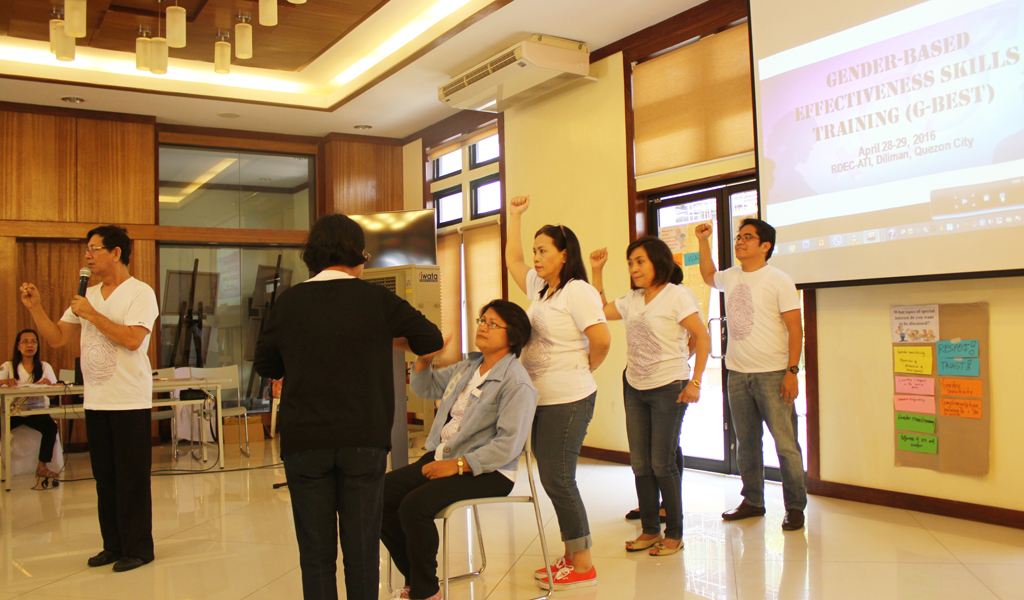
“Development could only be sustainable if all members of the society are part of the change that involves man, woman and LGBTI (lesbian, gay, bisexual, transgender and/or intersex) groups.”
Dr. Leo Gallego, gender focal person stressed this to almost a hundred regular employees of the Philippine Council for Agriculture and Fisheries (PCAF) during its first-ever Gender-Based Effectiveness Skills Training (G-BEST).
The staff were divided into two batches and were scheduled on April 25 to 26 and April 28 to 29 at the Function Hall of the Rural Development Education Center at the Agricultural Training Institute in Quezon City.
PCAF set the training to enhance the cognitive and action learning on gender-based effective skills among its regular employees.
“The equal opportunities between men and women are necessary to create a harmonious environment not only at home but also in work place. This training will bring us closer to the attainment of an equal opportunity for women and men to contribute to national development,” PCAF Exec. Dir. Ariel Cayanan said.
The training was designed to create a scope of 20% theory and 80% practice. Theoretical inputs and practical application through structured learning exercises like group discussions, role plays, workshops and creative sessions were carried out in the training.
“PCAF employees were provided concept of Gender and Development for them to mainstream gender in their activities, like providing assistance to farmers,” Dr. Gallego added.
He also mentioned that the training defines that man and woman had specific roles to live, out at home, office, community for a continuous development in correlation to the changing times that was brought by modern technology and inventions.
Recognizing these components, PCAF through G-BEST translated the government’s pledge of commitment to the Republic Act 1710 or Magna Carta for Women that seeks to eliminate discrimination against women by recognizing, protecting, fulfilling, and promoting the right of the Filipino women.











